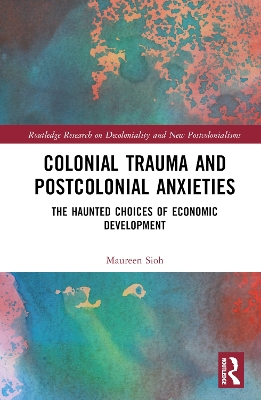Psychoanalytic Perspective on Reading Literature
 -10%
portes grátis
-10%
portes grátis
Psychoanalytic Perspective on Reading Literature
Reading the Reader
Roth, Merav
Taylor & Francis Ltd
08/2019
336
Dura
Inglês
9781138391307
15 a 20 dias
453
Acknowledgements
Permissions acknowledgements
Introduction: reading the reader
Part I: Transference relations of the literary reader
1: The distancing paradox
2: The bestowal of meaning
3: Seven types of identification
4: Resistance to reading
5: The idealization of the author
6: Mutual witnessing
7: Reparation of the ethical position
Part II: Reading literature as a means of transcendence
8: Transcendence beyond self-identity
9: Transcendence beyond the boundaries of human vulnerability and mortality
Part III: From psychic equilibrium to psychic change: the dialectic forces of literature
10: The dialectic between the present and the absent
11: The dialectic between the familiar and the uncanny
12: The dialectic between the symbolic order and disorder
13: The dialectic between 'continuous-doing' and 'emergent-being'
13a First illustration: Aharon Appelfeld's The Man Who Never Stopped Sleeping
13b Second illustration: Soren Kierkegaard's book Fear and Trembling: Dialectical Lyric
13c Third illustration: Otto Dov Kulka's book Landscapes of the Metropolis of Death
14: Epilogue: the transformative power of reading literature
Index
Acknowledgements
Permissions acknowledgements
Introduction: reading the reader
Part I: Transference relations of the literary reader
1: The distancing paradox
2: The bestowal of meaning
3: Seven types of identification
4: Resistance to reading
5: The idealization of the author
6: Mutual witnessing
7: Reparation of the ethical position
Part II: Reading literature as a means of transcendence
8: Transcendence beyond self-identity
9: Transcendence beyond the boundaries of human vulnerability and mortality
Part III: From psychic equilibrium to psychic change: the dialectic forces of literature
10: The dialectic between the present and the absent
11: The dialectic between the familiar and the uncanny
12: The dialectic between the symbolic order and disorder
13: The dialectic between 'continuous-doing' and 'emergent-being'
13a First illustration: Aharon Appelfeld's The Man Who Never Stopped Sleeping
13b Second illustration: Soren Kierkegaard's book Fear and Trembling: Dialectical Lyric
13c Third illustration: Otto Dov Kulka's book Landscapes of the Metropolis of Death
14: Epilogue: the transformative power of reading literature
Index
















